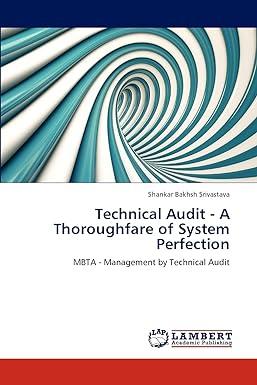Question
Most parent and subsidiary companies engage is a variety of transactions with each other. For example, a manufacturing company (parent) may secure raw materials from
Most parent and subsidiary companies engage is a variety of transactions with each other. For example, a manufacturing company (parent) may secure raw materials from a subsidiary, or a retailer (parent) may transfer receivables to a financing subsidiary. In these situations, the effects of the intercompany transfer activity must be eliminated in the consolidation process.
Inventory transactions are the most common type of intercompany transfer. Conceptually, the elimination entries related to inventory transfers are the same as for other intercompany transactions. The revenue and expense transactions must be eliminated in preparing the consolidated income statement, and the basis of the transferred assets must be adjusted on the consolidated balance sheet so that they appear at the original owner's cost basis. Finally, under the fully-adjusted equity method, all unrealized profits and losses on the intercompany transfers are deferred until the inventory is sold to a nonaffiliated company.
Companies use many different methods for determining transfer prices. Some companies sell the items to their affiliates at cost, some at the full-retail price and others at some price in between. From the selling company's perspective, the profit or loss on these sales is realized. However, for consolidation purposes, it is not considered realized until the item is resold to an outside party.
When inventory is sold from the parent to the subsidiary, it is called a downstream sale and any unrealized profit or loss accrues to the parent company's stockholders. When inventory is sold from a subsidiary to the parent company, it is called an upstream sale. Any unrealized profits or losses then accrue to the subsidiary's stockholders. If the subsidiary is wholly-owned then the unrealized profits or losses ultimately accrue to the parent company. If the subsidiary is less-than-wholly-owned, then the parent's proportionate share will ultimately accrue to the parent's stockholders, and the remaining unrealized profits or losses will accrue to the noncontrolling interest stockholders.
Instructions:
-
Read the following scenario:
Blue Bird Company is a major manufacturer of construction equipment. Over the past several years, Blue Bird has bought component parts from Orange Inc., a small company in the Midwest. Orange charges all customers $55/unit for this part. The variable cost/unit is $25, the allocated overhead is $15, and the mark-up is another $15.
The General Manager of Blue Bird thinks that it would be great cost saving measure to buy Orange, and thus convinces the Board of Directors to purchase 100% of Orange's common stock. After the acquisition, Orange continues to manufacture the component parts and to sell them to the same customers at the same price as before.
At the most recent meeting of Blue Bird's directors, a controversy has started because Orange still charges Blue Bird $55/unit for the part. The directors believe that the part should be sold to their company at cost. Orange Inc. contends that the full price better reflects its profitability, and that the company would be unfairly punished by transferring the part to Blue Bird.
-
Discuss the following information in your initial post:
- How does the decision about the transfer price affect consolidated net income?
- Which transfer price would be easiest for Blue Bird's accounting department to keep track of? Why?
- As Blue Bird's accountant, what price do you recommend? Be sure to fully explain your position.
Step by Step Solution
There are 3 Steps involved in it
Step: 1

Get Instant Access to Expert-Tailored Solutions
See step-by-step solutions with expert insights and AI powered tools for academic success
Step: 2

Step: 3

Ace Your Homework with AI
Get the answers you need in no time with our AI-driven, step-by-step assistance
Get Started


